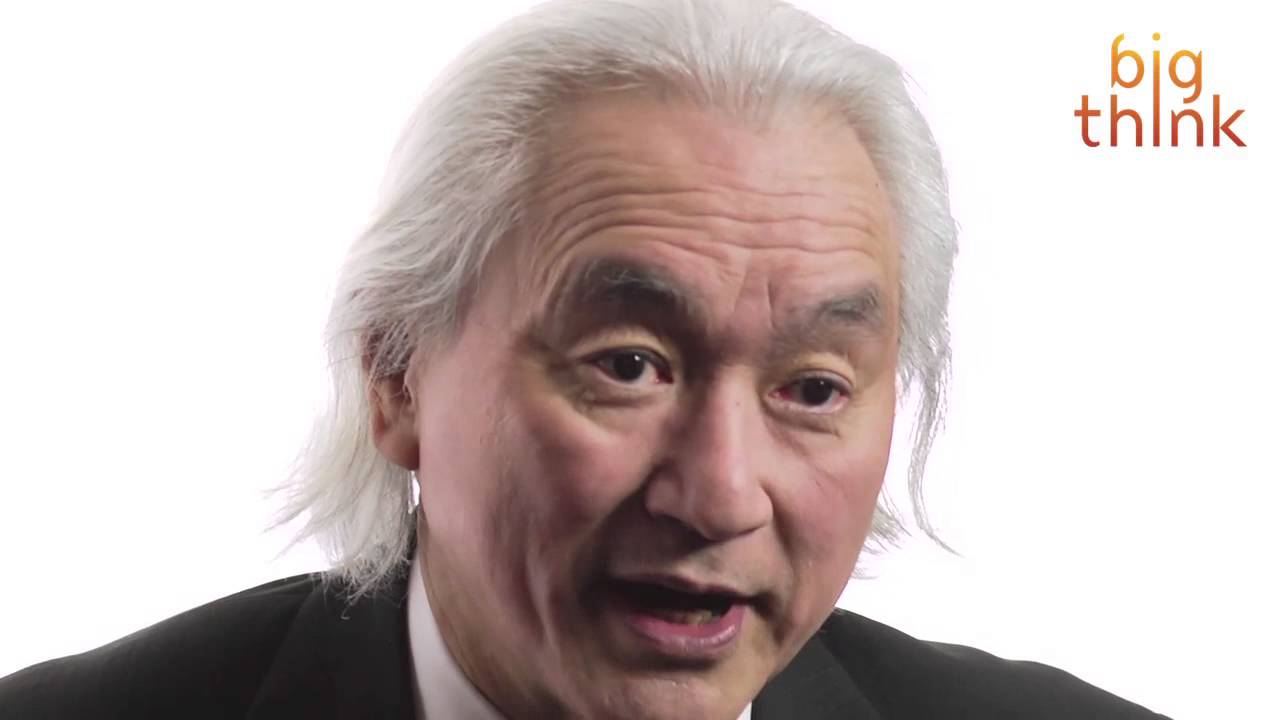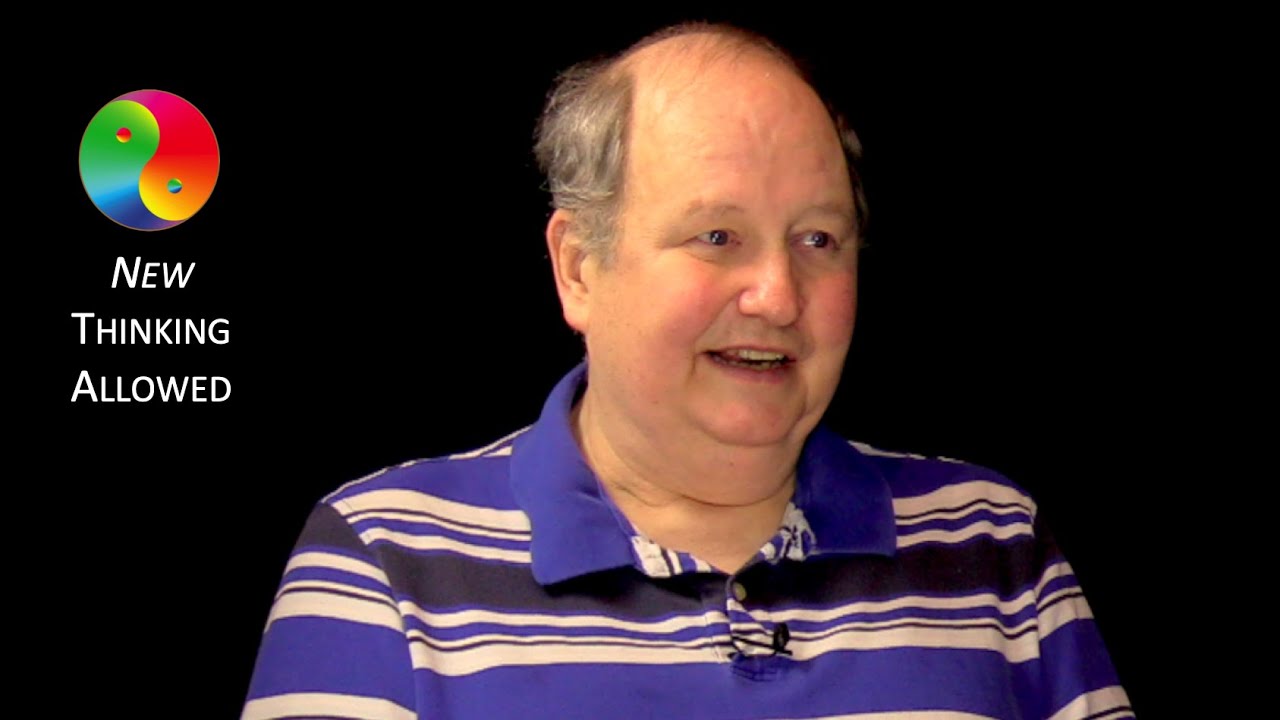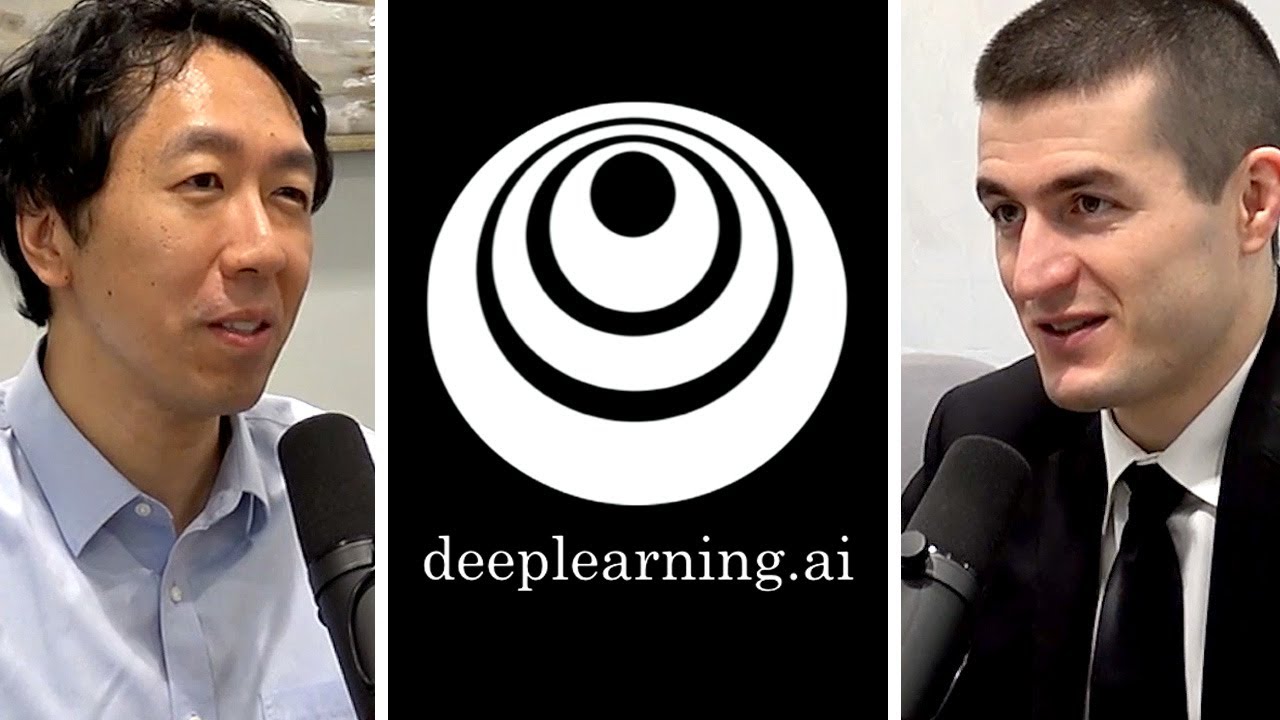Big Think
Michio Kaku on the Science of Dreams
New videos DAILY: https://bigth.ink
Join Big Think Edge for exclusive video lessons from top thinkers and doers: https://bigth.ink/Edge
———————————————————————————-
Michio Kaku describes how our prefrontal cortex disengages as we dream, thus suppressing the fact-checking component of our consciousness.
———————————————————————————-
MICHIO KAKU:
Dr. Michio Kaku is the co-founder of string field theory, and is one of the most widely recognized scientists in the world today. He has written 4 New York Times Best Sellers, is the science correspondent for CBS This Morning and has hosted numerous science specials for BBC-TV, the Discovery/Science Channel. His radio show broadcasts to 100 radio stations every week. Dr. Kaku holds the Henry Semat Chair and Professorship in theoretical physics at the City College of New York (CUNY), where he has taught for over 25 years. He has also been a visiting professor at the Institute for Advanced Study at Princeton, as well as New York University (NYU).
———————————————————————————-
TRANSCRIPT:
Michio Kaku: There’s a whole lore about dreaming. In fact, Sigmund Freud wrote a book called The Interpretation of Dreams which many people think is the foundation of psychoanalysis. Well scientists now have looked at Freudian psychology and the brain using all these modern techniques. And first of all we realize that perhaps Sigmund Freud wasn’t totally wrong. There are many textbooks which simply dismiss Freudian psychology calling it nuts. That is nothing but the sexual fantasies of a repressed Venetian scientist of the last century. But now we realize there’s more to it. First of all the unconscious mind. We can actually see the brain in motion and we realize that much of the activity is totally unconscious. Just like what Freud predicted.
And Freud also said there is the ego, the id and the superego, that we are in a constant battle with our desires and our conscious. And we see that now with brain scans. The ego is basically your prefrontal cortex. That is who you are. When you wonder where am I anyway. Well, you’re right there. You are sitting right behind your forehead. And then your desires. We see the pleasure center right there at the center of the brain. That is the libido. We see where the pleasure center is located. And then your conscience is right behind your eyes. The orbital frontal cortex right behind your eyes is where your conscience is. And so we actually see that in motion.
If you were to see a chocolate cake you would see these three parts of the brain going zippity back and forth like a ping pong ball because you’re constantly debating the pleasure of eating a chocolate cake versus how fat you’re gonna become and all the sugar and the calories that you don’t really need. So we see the beginnings of Freudian psychology coming out of brain scans. And now dreams. Freud had a whole collection of interpretation of dreams. Scientists have looked at and said, “Nonsense.” Now we understand the physiology of the dreaming process. And we realize that it comes at the back of the brain, the very primitive part of the brain and that certain parts of the brain are shut off when you dream. First of all your prefrontal cortex is basically shut off, it’s quiet. Your orbital frontal cortex that is your conscience is also shut off. But that part of the brain is your fact checker. The part of the brain that said, “Hmmm, that’s not right. Something’s wrong” is right behind your eyes. That’s shut off.
What is active when you dream is your amygdala. Now what does your amygdala govern? Fear and emotions. And so right then you know that when you dream the active part of the brain is not the fact checker, not the rational brain – it’s the emotional brain, the fearful brain that is active when you dream. And then there’s some superstition called lucid dreaming where you can actually control the direction of the dream. Well that superstition last year became science fact. At the Max Planck Institute in Germany they were able to show once and for all that lucid dreaming is testable, reproducible – it is real. And here’s how they did it. They took a person who was about to go to sleep and told them that when you dream clench your right fist and then clench your left fist. Now when you dream you are paralyzed. You cannot move when you dream.
Otherwise we’d be able to carry out all sorts of horrible things and destroy ourselves. So we are paralyzed when we dream. But when this person went into a dream state you can clearly see that the brain initiated orders to clench your right fist and your left fist. In other words, …
For the full transcript, check out https://bigthink.com/videos/michio-kaku-on-the-science-of-dream
Source




Want to get Smarter, Faster?
Subscribe for DAILY videos: https://bigth.ink/GetSmarter
Horrible video, he and Freud knows nothing of dreams. I'm disappointed.
Mmmm chocolate cake reference
Wow If only you could see your dreams on a screen that would be so freaky.
How dreams are being so creative? The stories our dreams are bringing are so fascinating. I can write a book from them.
I believe im awake in my dreams because when i wake up im still so tired from being awake in my dreams
If your here after me buy amc stock look it up
Call me thick, but WHY do we dream??
Me dreaming about going into water vortex’s and weird shit
Doctors: your dreams are things you reflect during your time awake
Me: don’t remember going into vortex’s and shit awake but okay..
I dislike it when any particular scientist presumes to speak to the public on behalf of all science using the scientific "we," however skilled they may be as a communicator and however much I might like what they are saying. I wish Kaku would lose the Sagan-like pose of general scientific authority and just talk to us as one adult mind to another.
Just be humble of what you know our knowledge is so so little there are lot of things we don't discover yet, some scientists are arrogant they think they know everything
It's not DE JA VU is it , It's real I know Mr…..Michio kaku …damn I was impressed first but not so much now..hmm nonetheless interesting
Hold on one second, no one knows what part of the brain causes consciousness…
Sir, you didn't mention anything about the MORPHING OF THE ENVIRONMENT in dreams. In Lucid dreaming, you can do nearly anything you want you like flying etc but you have no control on the environment.
i was talking to some English jews teacher but she was ignoring me and thinks i'm (camel), when you sleep on your back you can see horror dreams. the dreams don't come from (brain) they come from other place never think dreams are in some part of brain front or back
Wet dreams with volcanic eruption!
With all due respect Michu is a physicist not a neurologist. There are thousands of more qualified professionals who can speak more adequately about the science of sleep.
If the "concious" is shut off how do we dream if were not concious why do we remember dreams and see stuff and think in dreams
It’s actually quite fascinating that he brings up dr.fraud. This man was apparently a totally hack that was actually in cahoots with the nazis in order to spread disinformation and cause mass hysteria amongst n …Read more
It’s fascinating to know that the fact checking part of the brain is turned off during sleep, I have dreams all the time that even though they are completely nonsensical they still feel very real and make a ton of sense in the moment until I wake up. I guess this explains it
अब ये क्या है,,,,,,,
we're not paralyzed when we dream??!! once I walked when I was dreaming
They think of him as a drug user. But when you get "sparked" you see time and space differently, simply put. I am not promoting Cocaine. Cocaine is a plague. Have witnessed it, no bueno.
i control my dreams like most of the time , when i want , problem is if start imagining something new , world falls apart and i wake up. yep i have my own world in my head
so , what if i dont disagree with my amygdala, and its emotional thinking? what if im not rational , and most of my dreams are my thoughts , sometimes exagurated , but mostly true???
I find I can achieve lucid dreaming by 'testing' to see if I am dreaming IRL and then naturally you will do so when you dream. That said I haven't done it in years because (and this is important to be aware of), I think it increases the risk of sleep paralysis.
As far as i know the amygdala doesn't govern "fear and emotions" as stated, it governs the fear-response. This is where the "fight of flight" mechanism takes place and these are not called emotions. As Kaku says himself (in another video i belive), the part of the brain that governs emotions is in what he called "the monkey brain", while the amygdala is in the so called "reptile brain", if am not mistaken.
This is DP…dream physical…
What about DM…dream marrow…
the substantiality of dream…
As the suconscious level is the ultimate of…
Whoa you just blow my mind.
I been lucid dreaming since I was 13. It is amazing! 34 now. Started so I could get rid of my nightmares, and it worked. Have not had a bad dream since and even if I do I can change it or have fun with it, even being able to watch if I don't feel like editing it. Sometimes random can come out with very interesting results.
Simply because we can identify neural correlates to processes doesn't really mean much. It doesn't explain dreaming, it just explains what's going on neuronally as we dream. So, "When you dream, this part of your brain is activated." Who cares. It doesn't explain dreaming, or why we dream, or what dreams mean. All it does is explain the physical correlates to dreaming. You can have the physics down 100% on it, can dreaming can still be a mystical and deep experience. Physics and spirituality/mysticism are not mutually exclusive.
Physics will eventually justify that many of the theories of the past (such as Freud's and others) were excellent approximations to truth. Many philosophers of years past got it exactly right, we just don't have the physical evidence for it yet. That's what physics is up to. A narrative doesn't need physical support (yet) for it to be correct, which is why some narratives really speak to us, while others do not. The best of ideas come first and foremost from intuition.
I want to make a divice who crates an instant lucid dream and shows a chosen vid or game so can pls tell me
Plssss
Do not show my dream
Brilliantly explained the neuroscience of dreams.
How come in dreams I've actually thought or wondered if I was dreaming due to the high stress situation in my dream? Was i not totally asleep maybe? I have vivid dreams every night. It almost feels like I live two lives, its weird.
I wonder what happened to his right hand … anyone else sees it?
how shamelessly you lie
hi.. pls view, like, subscribe, comment and share.. my channel and videos
Consciousness behind our eyeballs? Are you completely certain? As a scientist with an in-depth understanding of quantum physics he might have explored the concept of non-local consciousness and all of the theories that now hint at this. There's simply too much evidence pointing to the fact that we are not our bodies. Mind and brain do not inhabit the same space. Leave some room for other possibilities. The brain as receiver/reducing valve is beginning to make much more sense. We do not know how much we do not know.
Anyone can tell me why when we are in the dream, we can never know ourselves? I'm mean our identity. Who ever introduce herself in the dream. I believe no one. But y?
Sir education is like a stone that naver melt in water
The government knows about this an they have lower your electrically single so you can remember you dream all the way trust me back in the day people would remember evey single details out there dream know you can hardly remember them doesn’t that seem strange